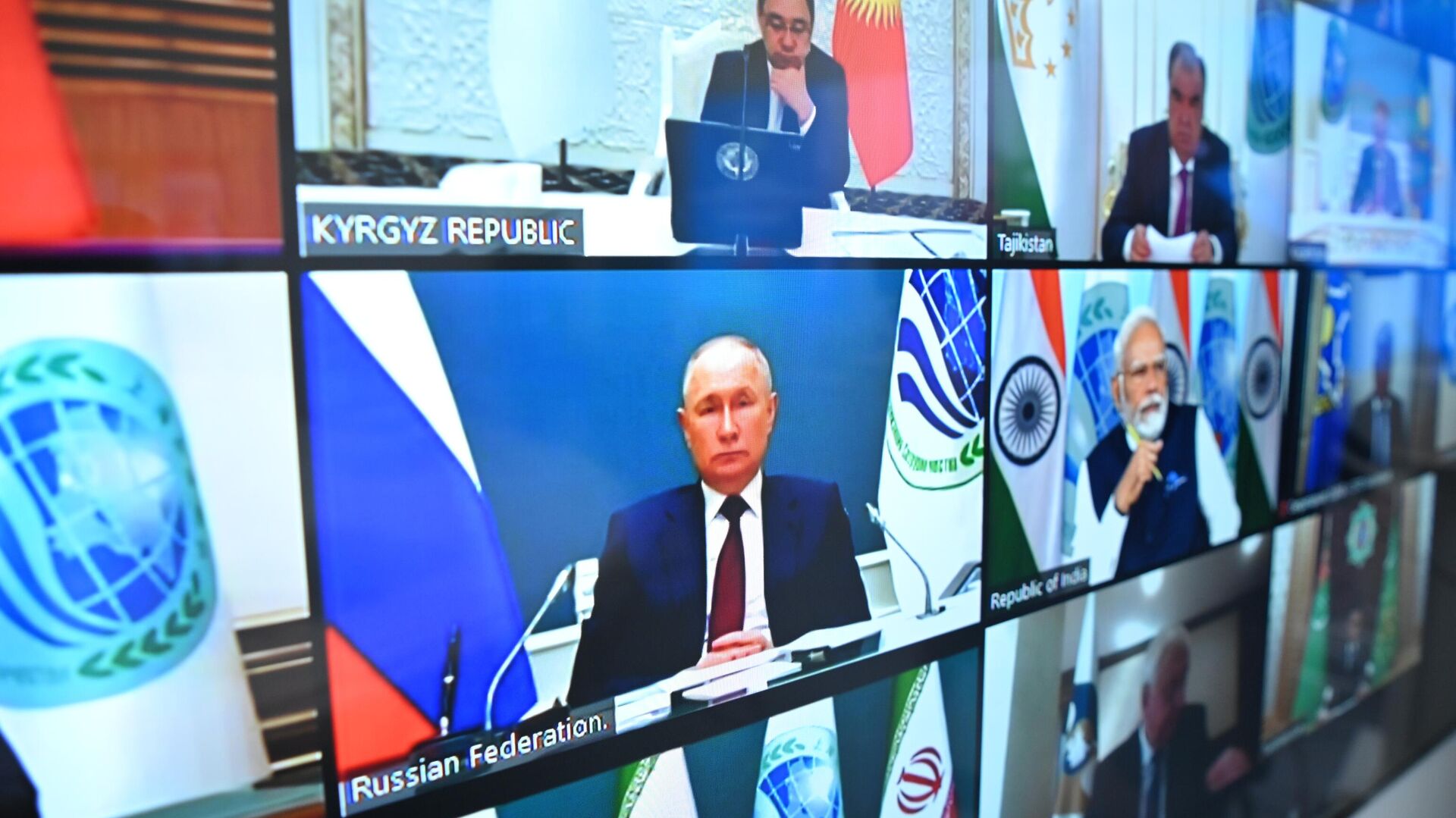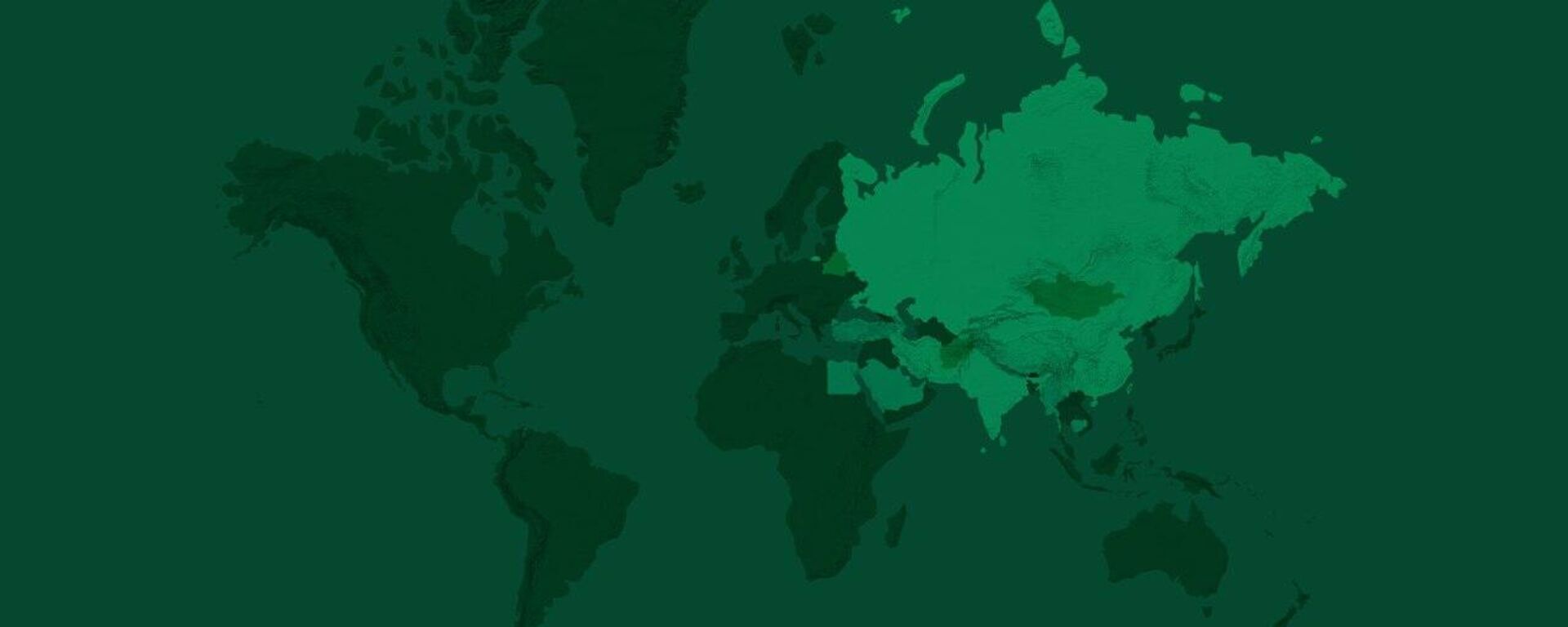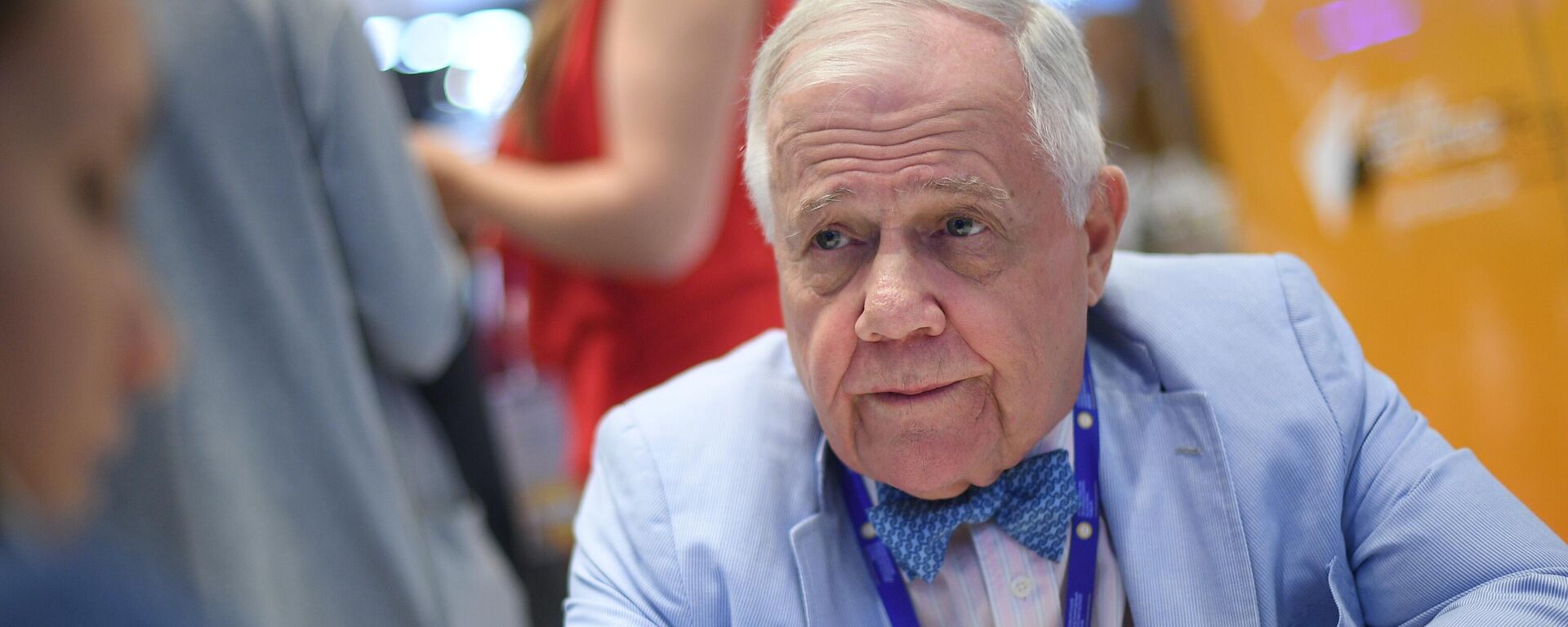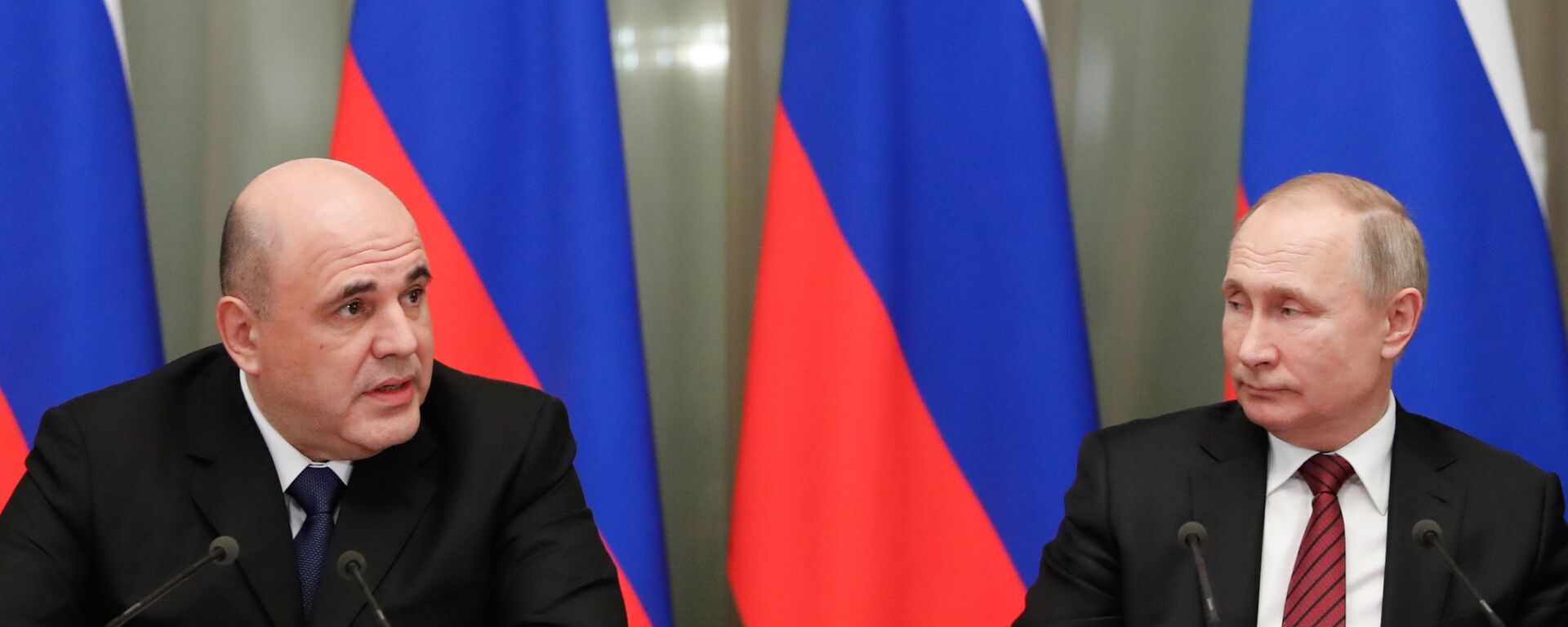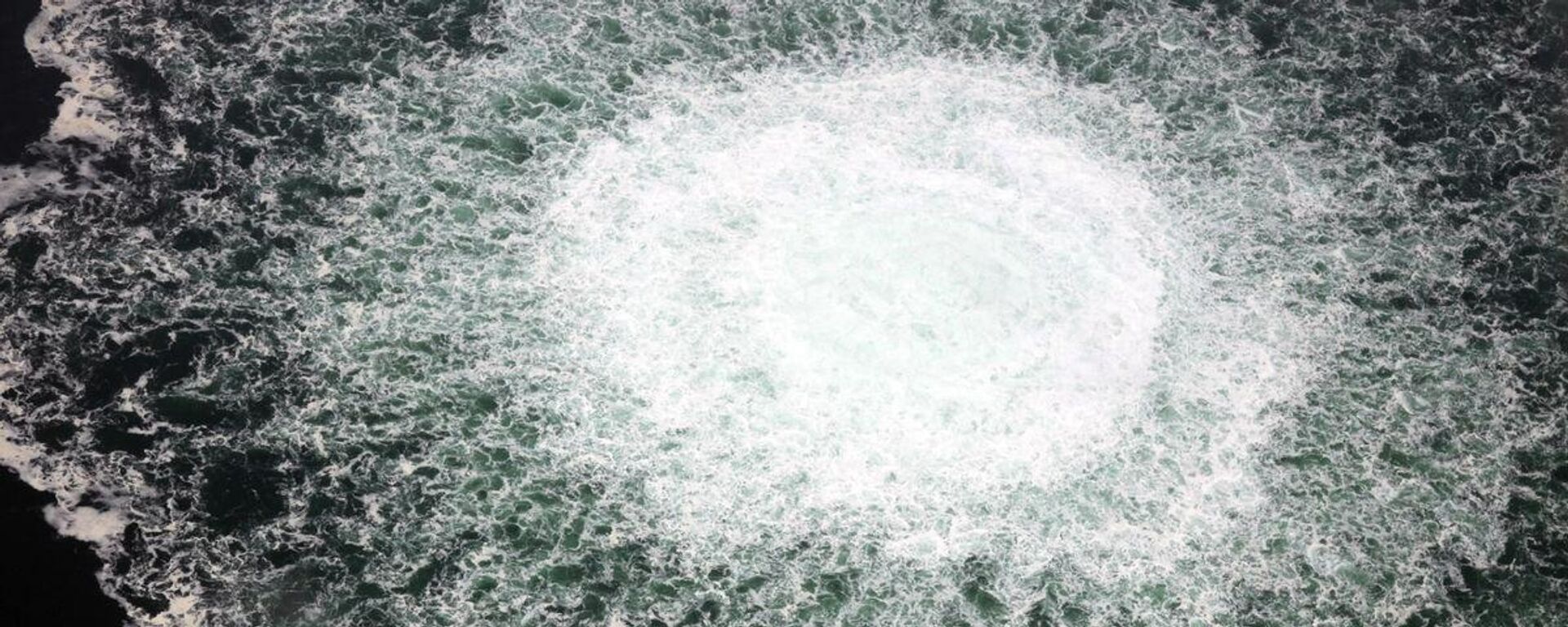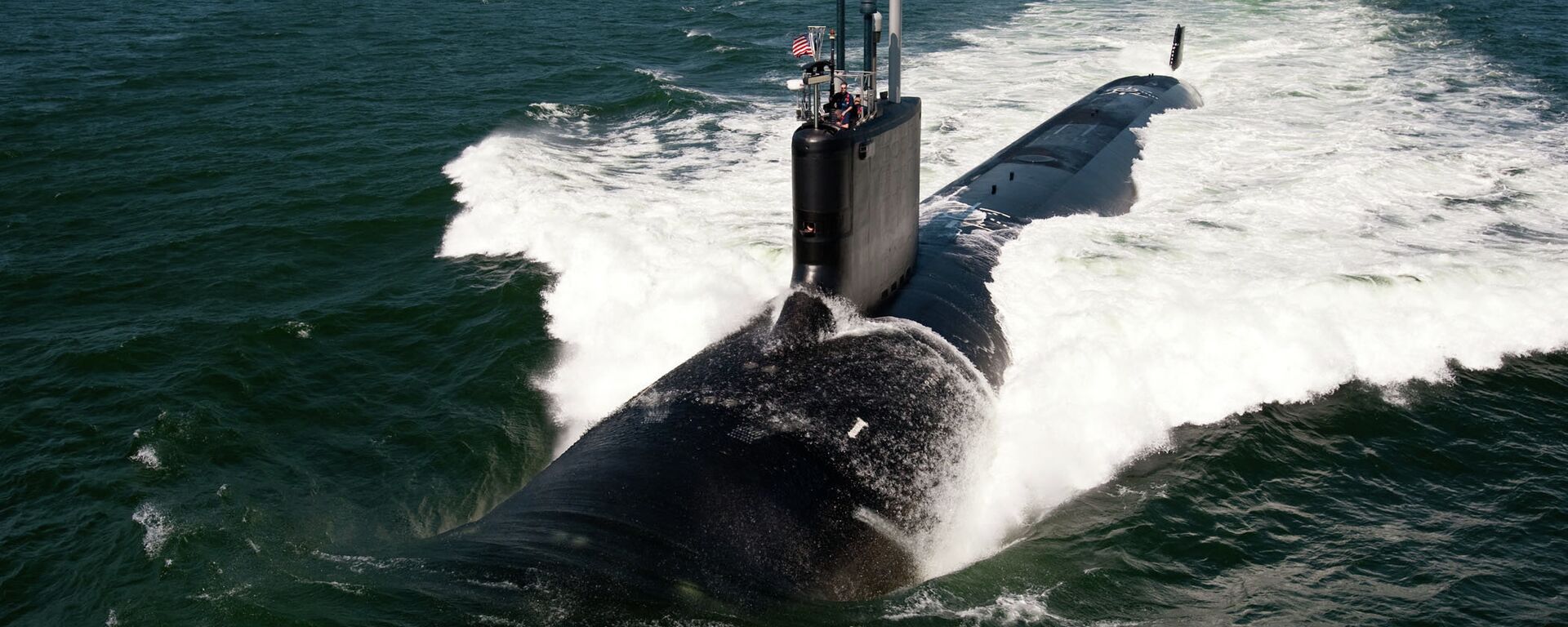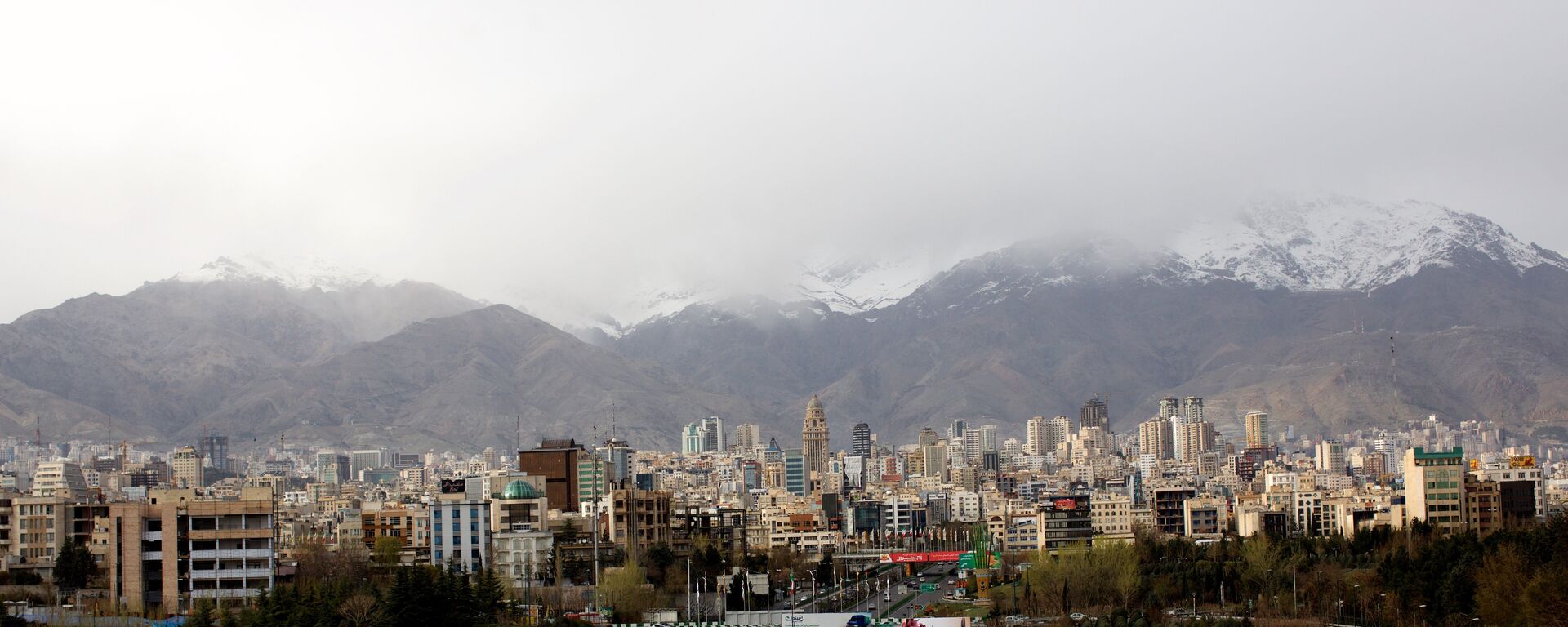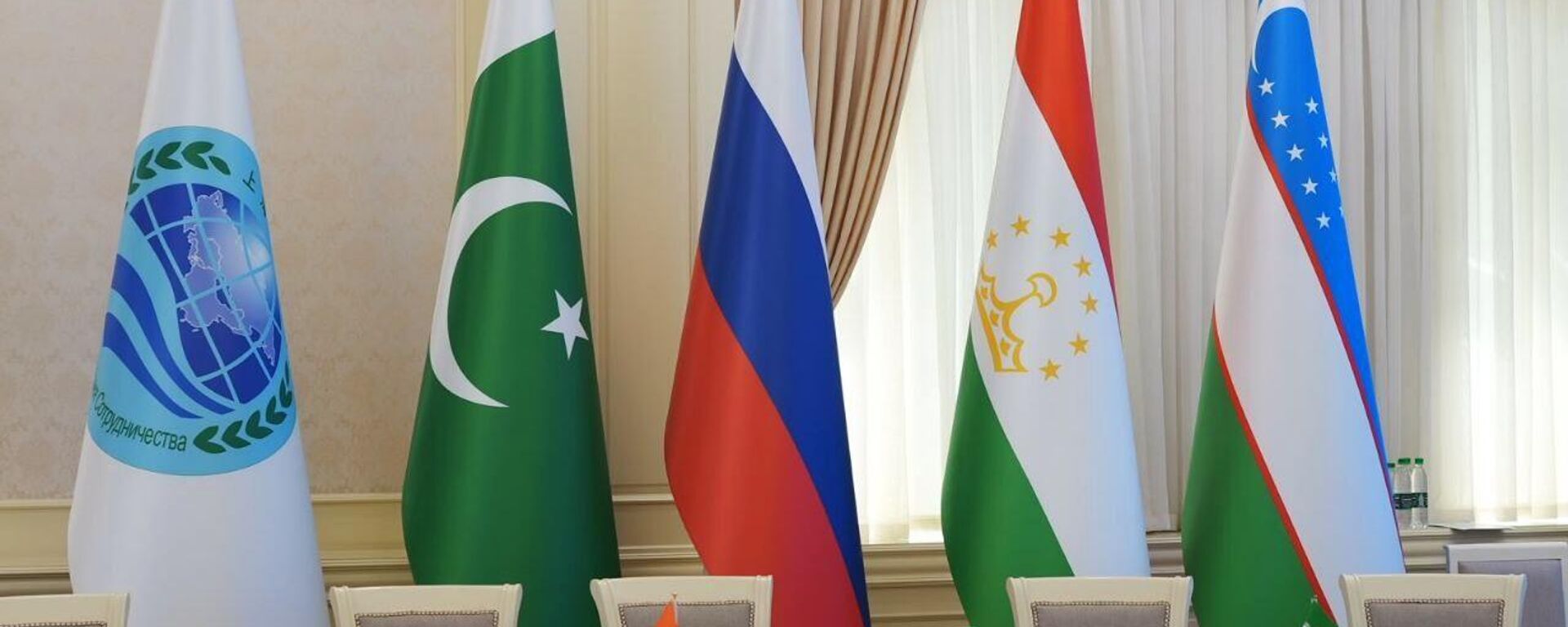https://sputnikglobe.com/20230705/sco-sets-course-for-de-dollarization-security-and-sustainable-growth-1111678054.html
SCO Sets Course for De-Dollarization, Security and Sustainable Growth
SCO Sets Course for De-Dollarization, Security and Sustainable Growth
Sputnik International
The virtual Shanghai Cooperation Organization (SCO) summit, which was hosted by India on July 4, brought the focus onto geopolitical tectonic shifts, global threats and new opportunities for Eurasian powers.
2023-07-05T15:00+0000
2023-07-05T15:00+0000
2023-07-31T16:59+0000
analysis
alexander lukashenko
russia
shanghai cooperation organisation (sco)
the united nations (un)
china
india
vladimir putin
narendra modi
xi jinping
https://cdn1.img.sputnikglobe.com/img/07e7/07/04/1111656143_0:159:3078:1890_1920x0_80_0_0_eb6e7e426ac59a830c22e57660f08a4f.jpg
"The world is moving toward multilateralism and we find that the UN, which is the largest grouping of countries, is becoming ineffective and highly politicized by the West," Indian military veteran Ret. Major General Shashi Bhushan Asthana told Sputnik, commenting on the recent summit. "Therefore, all over the world, the other groupings are coming up and taking a major load off the UN, and in that context, SCO has become an important forum with 40% of the global population and 20 percent of the world's GDP."SCO's Expansion: Iran Joins the Club, More to ComeOn July 4, the SCO held its 23rd summit with the participation of the entity's eight permanent members, heads of the observer countries and the UN secretary-general. For the first time in the last six years, the organization welcomed a new member: Iran was officially admitted to the SCO. The last time the SCO expanded was in 2017, when India and Pakistan joined the Eurasian club.The Islamic Republic signed a memorandum of commitment to obtain the status of SCO member at the September 2022 SCO meeting in Samarkand.Iran is not the only country that has sought full-fledged membership in the organization. Belarus is reportedly due to obtain the status in 2024. In addition, multiple countries including Turkiye, Afghanistan, and Mongolia have expressed interest in joining the bloc.Presently, Turkiye participates in the bloc's summits as a dialogue partner along with other 11 counterparts, namely: Kuwait, Egypt, Saudi Arabia, Bahrain, Qatar, United Arab Emirates (UAE), Maldives, Sri Lanka, Myanmar, Cambodia, and Nepal. Of these, Kuwait, Bahrain, Maldives, the UAE and Myanmar started the procedure to join last year.The SCO expansion is an important development that has a number of causes, as per Maj. Gen. Asthana."SCO offers several benefits to nations who want to join the grouping. First, it provides access to various Central Asian countries that are rich in natural resources," the retired major general explained. "Similarly, when we talk of China, it is an economic powerhouse, where major business conglomerates have their factories."Second, countries seek SCO membership to establish closer ties with the organization's players and contribute to its major agenda. Third, "with the Western domination, there is a feeling that there should be an alternative organization, where you could do trade," the Indian military veteran noted.De-Dollarization and Shift to National CurrenciesThe New Delhi Declaration of the Council of Heads of State of the Shanghai Cooperation Organization placed special emphasis on the need to boost economic cooperation and remove barriers in international trade amid the West's sanctions spree.As per the declaration, member states "spoke in favor of implementing the roadmap for gradual increase in the share of national currencies in mutual settlements by the interested member states."Russian President Vladimir Putin has pointed out that over 80% of commercial transactions between Russia and the People's Republic of China are now carried out in rubles and yuan. He emphasized that the share of the Russian currency in export transactions with all SCO countries in 2022 exceeded 40%.For his part, Chinese Chairman Xi Jinping noted that the People's Republic is ready to provide partners with access to its market and share experience. Xi highlighted that SCO member states need to increase cooperation on a sovereign digital currency and work on the creation of the SCO Development Bank.SCO Opposes Western SanctionsThe participants of the meeting specifically condemned the West's unilateral and illegitimate sanctions. Putin underscored that the collective West kicked off nothing short of a hybrid war against Russia starting with the eight-year-long militarization of Ukraine and fanning an openly Russophobic agenda there, ending with the sweeping restrictions aimed at destroying the Russian economy.Chairman Xi also lashed out at "protectionism, unilateral sanctions, the internationalization of the concept of national security, as well as attempts to erect artificial barriers, disrupt communications and supply chains."The declaration specifically reaffirmed the SCO's support for China's "Belt and Road Initiative" (BRI). Kazakhstan, the Kyrgyz Republic, Pakistan, Russia, Tajikistan and Uzbekistan all highlighted their joint work aimed at implementing the project, as well as efforts to link the construction of the Eurasian Economic Union (EAEU) and BRI.For his part, Belarusian President Alexander Lukashenko pushed the idea of "global development". He noted that Minsk has long been advocating the creation of a large Eurasian partnership with countries with which Belarus has developed close relations, and "the integration of the EAEU, SCO and BRICS formats in a broad context." Lukashenko particularly stressed that the current geopolitical shifts are forcing the SCO to focus not only on the economy, but also on regional security.Security and Terror ThreatsAccording to the New Delhi declaration, threats and challenges are becoming more and more complex, destructive and dangerous. Moreover, existing conflicts are aggravating and new conflicts are emerging, the entity highlighted.The declaration pointed out that SCO member states "will seek to develop common principles and approaches to form a unified list of terrorist, separatist and extremist organizations whose activities are prohibited on the territories of the SCO member states."At the same time, the organization stated that it "categorically oppose[s] militarization of information and communication technologies (ICTs)," stressing that it "will continue cooperation within the framework of specialized negotiating mechanisms at the UN and other international platforms."Threat of Nuclear, Bio and Chemical ArmsThe participants of the summit also placed emphasis on the nuclear non-proliferation issue, the prohibition on the development, production and stockpiling of bioweapons and chemical weapons.The mentioning of a bio, chemical and nuclear threat came following the exposure of the Pentagon-funded secretive biolaboratories in the territory of Eurasia, as well as reported instances of Ukrainian military and nationalist battalions using chemical arms and planning nuclear provocations amid Russia's special military operation. At the same time, the US plans to equip Australia, a non-nuclear state, with nuclear-powered submarines and to transfer atomic technologies to the Australian industrial sector, move that are fraught with severe proliferation risks, according to major Asian powers.The heads of the SCO member states also called for "sustainable implementation of the Joint Comprehensive Action Plan on the Iranian nuclear program to be important and, in accordance with Resolution 2231 of the UN Security Council, urge all the participants to strictly fulfill their obligations for comprehensive and effective implementation of the document."SCO's Unity"To some extent, the SCO nations have overcome their bilateral differences within the group's framework," said Asthana, pointing out that a summit organized by Delhi was attended by Islamabad as well as Beijing, despite being a virtual summit.
https://sputnikglobe.com/20230704/growing-across-eurasia-which-countries-want-to-join-sco-1111665310.html
https://sputnikglobe.com/20230702/jim-rogers-de-dollarization-fuelled-by-soaring-us-debt-1111626237.html
https://sputnikglobe.com/20230704/russian-economy-keeps-recovering-despite-sanctions---prime-minister-at-meeting-with-putin-1111666521.html
https://sputnikglobe.com/20230627/danish-security-service-says-investigation-into-nord-stream-sabotage-ongoing-1111497127.html
https://sputnikglobe.com/20230607/why-aukus-nuclear-sub-deal-will-stir-up-pacific-into-ocean-of-storms-1110982350.html
https://sputnikglobe.com/20230704/violation-of-iran-nuclear-deal-shows-us-and-europe-never-sincere-about-agreements---scholar-1111656290.html
https://sputnikglobe.com/20230704/from-arctic-to-indian-ocean-global-transformations-boost-sco-growth-1111663871.html
russia
china
turkiye
belarus
iran
eurasia
Sputnik International
feedback@sputniknews.com
+74956456601
MIA „Rossiya Segodnya“
2023
News
en_EN
Sputnik International
feedback@sputniknews.com
+74956456601
MIA „Rossiya Segodnya“
Sputnik International
feedback@sputniknews.com
+74956456601
MIA „Rossiya Segodnya“
shanghai cooperation summit (sco), russia, india, china, trade in national currencies, dedollarization, nuclear non-proliferation, aukus, asia pacific region, biowarfare, chemical warfare, terrorism, belt and road initiative, sco growth, sco expansion
shanghai cooperation summit (sco), russia, india, china, trade in national currencies, dedollarization, nuclear non-proliferation, aukus, asia pacific region, biowarfare, chemical warfare, terrorism, belt and road initiative, sco growth, sco expansion
"The world is moving toward multilateralism and we find that the UN, which is the largest grouping of countries, is becoming ineffective and highly politicized by the West," Indian military veteran Ret. Major General Shashi Bhushan Asthana told Sputnik, commenting on the recent summit.
"Therefore, all over the world, the other groupings are coming up and taking a major load off the UN, and in that context, SCO has become an important forum with 40% of the global population and 20 percent of the world's GDP."
"It is an important grouping where you have China, Russia - two P5 members [P5 are five permanent members of the United Nations Security Council – Sputnik], India another important member, and other players of Asia. Earlier, most groupings, whether it is the United Nations which came out of the Atlantic Charter or NATO, all these platforms were Western-oriented. SCO, on the other hand, is an Asian-oriented bloc, and in an era of multilateralism, it has provided a little bit of balance," he continued.
SCO's Expansion: Iran Joins the Club, More to Come
On July 4, the SCO held its 23rd summit with the participation of the entity's eight permanent members, heads of the observer countries and the UN secretary-general. For the first time in the last six years, the organization welcomed
a new member:
Iran was officially admitted to the SCO. The last time the SCO expanded was in 2017, when India and Pakistan joined the Eurasian club.
The Islamic Republic signed a memorandum of commitment to obtain the status of SCO member at the September 2022 SCO meeting in Samarkand.
Iran is not the only country that has sought full-fledged membership in the organization. Belarus is reportedly due to obtain the status in 2024. In addition, multiple countries including Turkiye, Afghanistan, and Mongolia have expressed interest in joining the bloc.
Presently, Turkiye participates in the bloc's summits as a dialogue partner along with other 11 counterparts, namely: Kuwait, Egypt, Saudi Arabia, Bahrain, Qatar, United Arab Emirates (UAE), Maldives, Sri Lanka, Myanmar, Cambodia, and Nepal. Of these, Kuwait, Bahrain, Maldives, the UAE and Myanmar started the procedure to join last year.
The SCO expansion is an important development that has a number of causes, as per Maj. Gen. Asthana.
"SCO offers several benefits to nations who want to join the grouping. First, it provides access to various Central Asian countries that are rich in natural resources," the retired major general explained. "Similarly, when we talk of China, it is an economic powerhouse, where major business conglomerates have their factories."
"Moreover, Russia is an important defense equipment manufacturer and supplier, India is emerging as a leader in the pharmaceuticals sector and it is also the fastest-growing economy in the world. So nations who are seeking to become SCO members would like to engage with these countries and get the best of them," he continued.
Second, countries seek SCO membership to establish closer ties with the organization's players and contribute to its major agenda. Third, "with the Western domination, there is a feeling that there should be an alternative organization, where you could do trade," the Indian military veteran noted.
De-Dollarization and Shift to National Currencies
The New Delhi Declaration of the Council of Heads of State of the Shanghai Cooperation Organization placed special emphasis on the need to boost economic cooperation and remove barriers in international trade amid the West's sanctions spree.
As per the declaration, member states "spoke in favor of implementing the roadmap for gradual increase in the share of national currencies in mutual settlements by the interested member states."
"This is another factor which has come into play because economic wars are also taking place between rivals in the present-day world," said the military veteran, while commenting on the shift to local currencies and de-dollarization.
Russian President Vladimir Putin has pointed out that over 80% of commercial transactions between Russia and the People's Republic of China are now carried out in rubles and yuan. He emphasized that the share of the Russian currency in export transactions with all SCO countries in 2022 exceeded 40%.
For his part, Chinese Chairman Xi Jinping noted that the People's Republic is ready to provide partners with access to its market and share experience. Xi highlighted that SCO member states need to increase cooperation on a sovereign digital currency and work on the creation of the SCO Development Bank.
SCO Opposes Western Sanctions
The participants of the meeting specifically condemned the West's unilateral and illegitimate sanctions. Putin underscored that the collective West kicked off nothing short of a
hybrid war against Russia starting with the eight-year-long militarization of Ukraine and fanning an openly Russophobic agenda there, ending with the sweeping restrictions aimed at destroying the Russian economy.
Chairman Xi also lashed out at "protectionism, unilateral sanctions, the internationalization of the concept of national security, as well as attempts to erect artificial barriers, disrupt communications and supply chains."
The declaration specifically reaffirmed the SCO's support for China's "Belt and Road Initiative" (BRI). Kazakhstan, the Kyrgyz Republic, Pakistan, Russia, Tajikistan and Uzbekistan all highlighted their joint work aimed at implementing the project, as well as efforts to link the construction of the Eurasian Economic Union (EAEU) and BRI.
For his part, Belarusian President Alexander Lukashenko pushed the idea of "global development". He noted that Minsk has long been advocating the creation of a large Eurasian partnership with countries with which Belarus has developed close relations, and "the integration of the EAEU, SCO and BRICS formats in a broad context." Lukashenko particularly stressed that the current geopolitical shifts are forcing the SCO to focus not only on the economy, but also on regional security.
Security and Terror Threats
According to the New Delhi declaration, threats and challenges are becoming more and more complex, destructive and dangerous. Moreover, existing conflicts are aggravating and new conflicts are emerging, the entity highlighted.
"Almost every SCO member nation is facing a threat from terrorism," said Maj. Gen. Shashi Asthana. "The consensus on terrorism has always been there as far as talks between SCO members are concerned, but there has been no action on the ground. The fact is that there is a structure called Regional Anti-Terrorist Structure (RATS) under the SCO framework, therefore everybody in the grouping recognizes terror as a major threat."
The declaration pointed out that SCO member states "will seek to develop common principles and approaches to form a unified list of terrorist, separatist and extremist organizations whose activities are prohibited on the territories of the SCO member states."
At the same time, the organization stated that it "categorically oppose[s] militarization of information and communication technologies (ICTs)," stressing that it "will continue cooperation within the framework of specialized negotiating mechanisms at the UN and other international platforms."
Threat of Nuclear, Bio and Chemical Arms
The participants of the summit also placed emphasis on the nuclear non-proliferation issue, the prohibition on the development, production and stockpiling of bioweapons and chemical weapons.
"Member states consider that the early entry into force of the Protocol on Security Assurances to the Agreement on a Nuclear Weapon-Free Zone in Central Asia for all signatories will become a significant contribution to regional security and the strengthening of the nuclear non-proliferation regime," the declaration said.
The mentioning of a bio, chemical and nuclear threat came following the exposure of the Pentagon-funded
secretive biolaboratories in the territory of Eurasia, as well as reported instances of Ukrainian military and nationalist battalions
using chemical arms and planning
nuclear provocations amid Russia's special military operation.
At the same time, the US plans to equip Australia, a non-nuclear state, with nuclear-powered submarines and to transfer atomic technologies to the Australian industrial sector, move that are fraught with severe proliferation risks, according to major Asian powers.
The heads of the SCO member states also called for "sustainable implementation of the Joint Comprehensive Action Plan on the Iranian nuclear program to be important and, in accordance with Resolution 2231 of the UN Security Council, urge all the participants to strictly fulfill their obligations for comprehensive and effective implementation of the document."
"To some extent, the SCO nations have overcome their bilateral differences within the group's framework," said Asthana, pointing out that a summit organized by Delhi was attended by Islamabad as well as Beijing, despite being a virtual summit.
"Additionally, certain agendas which were not relevant to the SCO were not taken up, showing that SCO did meet its aims in more than one manner. In that context, India managed the SCO very well," the Indian military veteran concluded.
